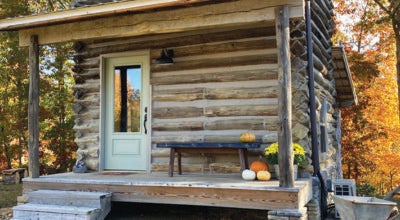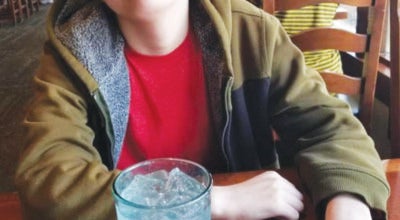Write On! Full moon, veterans, forest
Published 9:25 am Thursday, November 11, 2021
|
Getting your Trinity Audio player ready...
|
Local writers in the Davie County Public Library Write On! program submitted the following stories recently. The next virtual meeting is on Dec. 6 at 4: p.m. December prompts include: Winter; Christmas Past, Present, or Future; Illustrate a Holiday Song. Contact Jazmyne Baylor at jbaylor@daviecountync.gov to join.
Full Moon
By Katie Burton
When the moon is full and high in the morning, especially in November, I think of her. Things that don’t belong together materialize – Moons/Mornings, Tragedy/Beauty, Youth/Death.
In my class of 16 students, she had a subtlety that could go unnoticed. Porcelain white skin, quiet. Waiting as young girls do – to grow up, to fall in love, to become a woman. I wonder if she had more time, how she would have risen in this world. But she would never have her quinceañera.
The Earth’s moon has a subtlety about her that could also go unnoticed. Porcelain white, quiet, waiting. Damaged and scarred by comets and asteroids. The vastness of the universe exposing our insignificance. Some things are just too big for us to comprehend.
The pull of tragedy gripped our small classroom, our small community, our families patient with us through our grief. Twelve years is too soon to understand death. The girl once barely noticed would now be known as the angelic girl, larger than life, taken too soon.
The resilient moon pulls and draws oceans. It stabilizes the unsteady Earth, guides humanity through days and nights. In the darkness, a light shines bright. And even when the sun rises, the night’s light shines through.
December, my class of 15 ebbed and flowed back into orbit, damaged but resilient. Her empty seat was a giant crater left by a passing asteroid that shook our lives and shifted us.
I think the Earth’s moon should have a proper name. Such a powerful entity to be simply referred to as “the moon.” La Luna in Spanish, feminine, but still put simply “the moon.”
Jupiter has 79 moons, and 53 have names – like Europa with its surface of ice. Io with its volcanoes. Callisto, colorful and curious. The Earth’s only moon should have a proper name. One to consider perhaps – Alyssa.
Losing Myself in the Forest
By Jane McAllister
I have never been lost in the forest, but I often lose myself in the forest. My times in the forest typically find me on established trails, following blazes on trees and trail markers, and not having to determine my orientation whether by looking for moss on the north side of trees or scaling to some height sufficient to spot and aim for a distinctive landmark such as a mountain peak or flowing river. Seldom am I following game trails, though I suppose that might help in the case of being truly lost. I have read accounts of hikers who somehow got off the trail, got lost, and died before being found. Very disturbing!
My walks in the trees are therapeutic. The walks induce a sense of calm, and sooth my troubled soul. Perhaps it is the green canopy above me, filtering the sunlight through gently swaying leaves. Perhaps it is the sense of timelessness, of quiet strength given off by the towering trunks of trees that have stood for hundreds, and sometimes thousands, of years. Once deep into a forest, it is often possible to lose intrusive sounds of “outside,” and listen only to the sounds of “inside,” the birds, the winds, the crunch of autumn leaves underfoot, perhaps the babbling of a nearby creek.
Forests are our lifelines, the air that we breathe, the habitat of many of God’s creature. As such, they are worth conserving, and valuing, and visiting.
Veterans
By Linda H. Barnette
My very first recollection about veterans is from 1945, when I was 4 years old. At various times, my uncles who had been in WWII came back home to Mocksville. My most vivid memory is when my uncle Norman Smith, who was in the Navy, came to our house late one night after we were already asleep. We all woke up and celebrated his return! Daddy had made me a little red wooden swing attached to a big oak tree by a rope, and I made up a song about a sailor. The words I recall are these: “I love a sailor boy, and he loves me too.” I would swing and sing much of the time, and Norman seemed to love the song.
The other uncles, Kermit Smith, Quentin Smith, and Harold Hartley, all made it back but not in such a dramatic, personal way. Kermit was with the army in the Battle of the Bulge and saw the Jewish prisoners at one of the camps right at the end of the war. He was an older man when I heard him talk about those things. Daddy’s brother Harold served in the army and was stationed in the Philippines, though not a part of the Bataan death march. Another uncle, Quentin Smith, was a Marine stationed at Camp Pendleton in California. His job was to build airplanes. Mother’s sister married a career Army man, Charles Wrenn, who saw action in both Korea and Viet Nam. My cousin, Bob Smith, was also in the army for many years and was stationed in Okinawa and Taiwan during the Viet Nam War. His brother Richard also served during that era.
In those days I don’t think people freely discussed their experiences, especially around children. I have often wondered how lonely and scary it must have been for all of my grandparents to know their sons were far away from home and in danger.
In recent years I have done a lot of research about family members and have discovered that I had relatives in every American war except for WWI. One of my topics was the Civil War, and I found that 6 out of 8 great-grandfathers fought in that war and all survived.
Along with this information is the story of the daguerreotype that my Grandmother Smith gave me long ago. For years and years, it was out of sight and out of mind, but when I started doing my Civil War research, I got it out and had no idea whose picture it was. My grandmother had not remembered either, just that he was a Leach. After much reading and the process of elimination, I learned that the picture was of John Leach, a brother of Mama Smith’s grandmother, Sarah Penry Leach Dwiggins. He was wounded in the Battle of Chancellorsville, sent to a hospital in Richmond, where he later died and was buried in Virginia.
Looking into the face of the young man in the daguerreotype, so innocent and so sad makes me so very thankful for all of the veterans of all wars, realizing that we owe our freedom in large part to all of them for their service through the centuries.
Note: If you wish to search for the veterans in your family, our library has several books on the subject by Marie Craig and the sisters from Cooleemee.





